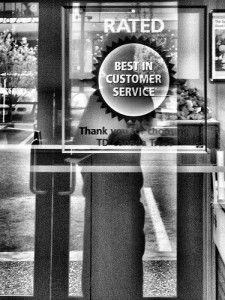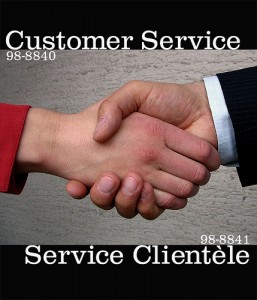 In my experience, our best customer experiences were not about the product or the service alone, but about the attitude with which those services were rendered or product delivered.
In my experience, our best customer experiences were not about the product or the service alone, but about the attitude with which those services were rendered or product delivered.
Indeed, very often, the product is not very high quality. But the service that comes with it is so good, that, eventually the customer is ok if the quality of the product is just enough.
I had one such experience at a Mumbai restaurant. The friend I was with, a regular at that restaurant, ordered a rich green curry that he was very fond of “methi malai matar” that he’d first tasted at this very restaurant. However on that day, it didn’t live up to his expectations.
As it turned out, the old cook had left and the dish was cooked by his substitute. To me, it really wasn’t that bad, but, to my friend, it wasn’t what he wanted. So he made a very casual remark to the waiter, something about the “funny taste” of the curry and the alert waiter immediately appeared by our table, carrying another curry — this one was the new cook’s specialty and we were treated to it, on the house.
Then when we were leaving, the manager appeared at the gate bearing a rose stem that he politely handed to me, once again profusely apologizing for the fall in their own, pre- established standard.
It costs very little but brings rich returns
A frequent shopper once complained about checkout counter attendants who slide the credit card, instead of handing it back politely as many Chinese or Japanese attendants do, with two hands. Giving the card back costs little and enhances courtesy in leaps and bounds. Businesses should try to enhance service and not just marketing budgets. Yet, many think increasing your budget will help you provide better service. No wonder that there is a growing disconnect between the lack of customer service and increased marketing budgets in the American businesses. 
A food chain like McDonald’s provides a simple experience, yet they are remarkably successful because they maintain the same standards in terms of neat,
good quality food that is good value for money in whichever country they may operate in.
Starbucks succeeded at creating the service by making their baristas as knowledgeable about their products as wine experts are – once again costs some money, but pays huge dividends.
And, all this has nothing to do with customization that costs a bomb for each customer. It’s all about attitude. Actually, if you do not have a service attitude, it might cost you more. And that’s not just in lost profits but in actual cost. Take for example banks. I know banks that can’t solve my problem despite repeated calls to them. Every time I call them, it costs. It costs them telephone time, an employee’s salary etc. But if have the right service attitude, then it costs them much lower because they don’t have to spend that extra time and they get a satisfied customer.
Get out of petty thinking
It’s easy to think, “My rate is $50 an hour. So if I spend an extra hour to make sure my customer is delighted, I lose $50” That’s petty. I would ask you, what is your cash outflow to spend extra hour? That’s real cost. Not what you ‘could have earned’ unless you have a real work waiting for you which you will surely lose if you work on the first one.
What is your own “best customer experience?” Share it.


